With the ongoing progress of China's social and economic development and the gradual improvement in living standards, there is a growing public emphasis on health. Against this backdrop, the Food for special medical purpose (FSMP) sector, a vital component of China's healthcare industry, has experienced rapid growth.
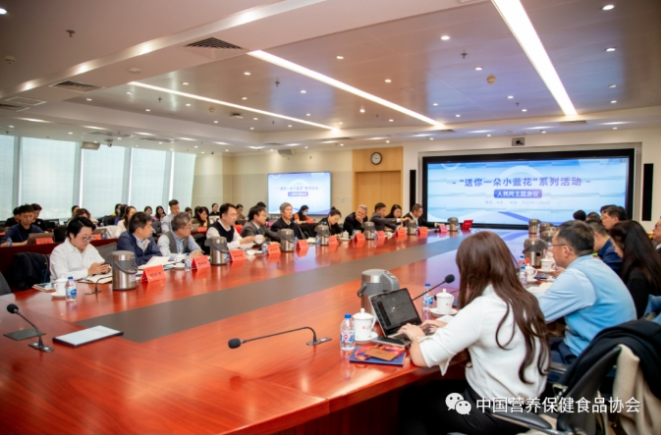
Meeting scene
Under the guidance of the Department of Special Food Safety Supervision and Administration at the State Administration for Market Regulation (SAMR), the “Send You a Little Blue Flower” series thematic meeting, initiated by the CNHFA, was convened at the People's Daily headquarter on December 6th. This event, as one of the theme day activities during the 2023 Food Safety Awareness Week organized for SAMR's ministries and commissions, brought together relevant department heads, authoritative industry experts, and representatives from pertinent enterprises. Their purpose was to provide insights and recommendations on the scientific utilization of special foods, consumer awareness and comprehension, ensuring the safety of FSMP consumption, and advancing the high-quality development of the industry. This initiative also aimed to foster further development and innovation in the clinical nutritional therapy system.
Multiple Measures to Safeguard the FSMP Industry's Foundation
The FSMP refers to specially processed and formulated food products designed to cater to the specific nutritional requirements of individuals with limited intake, digestive and absorption disorders, metabolic disorders, or specific medical conditions. It plays a critical and irreplaceable role in ensuring the health and safety of individuals with these unique healthcare needs.
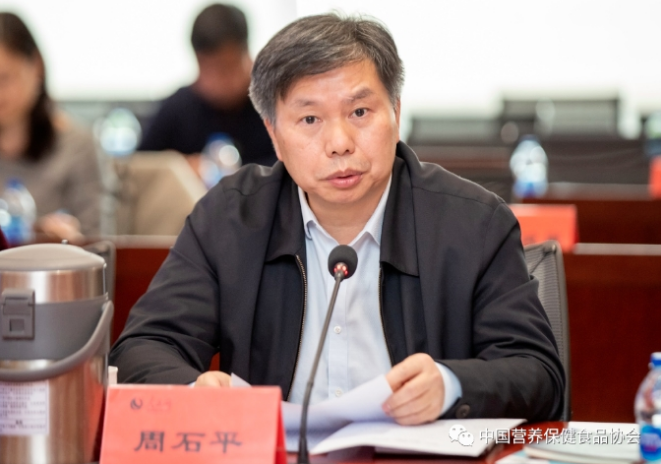
Zhou Shiping, the Director of the Department of Special Food Safety Supervision and Regulation at SAMR, emphasized that in 2015, the People's Republic of China Food Safety Law, for the first time, defined the legal status of the FSMP, categorizing them as special foods subject to rigorous registration and supervision. Recognizing the importance of strengthening oversight to ensure FSMP safety in China, he affirmed that the SAMR would continue to firmly adhere to the “four strictest” requirements: strict registration, enhanced supervision, improved services, and the steadfast promotion of related efforts. This commitment aims to create a safe and secure consumer environment while preserving the safety of specialty foods. Currently, after rigorous assessments of product safety, nutritional adequacy, and clinical effectiveness, a total of 153 FSMPs have gained approval, covering a wide range of age groups and addressing the nutritional needs of individuals with specific medical conditions. In 2022, SAMR released the Guidelines for Labelling of Foods for Special Medical Purposes, introducing the distinctive “Little Blue Flower” logo to enhance public awareness and recognition of FSMPs.
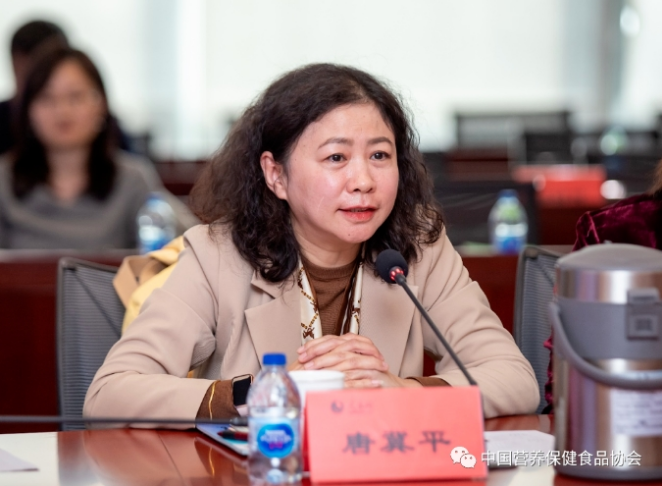
Tang Jiping, the Grade II Inspector of the SAMR's Department of Press and Publicity, underlined the need for a people-centered approach in FSMP promotion, emphasizing the importance of science communication through storytelling and public opinion guidance. For topics of high social significance such as food safety, maintaining a strong sense of responsibility is a long-term mission. Industry associations should fully utilize their capacity to unite and engage enterprises, enhancing their social responsibility and collectively fostering a spirit of cooperative management.
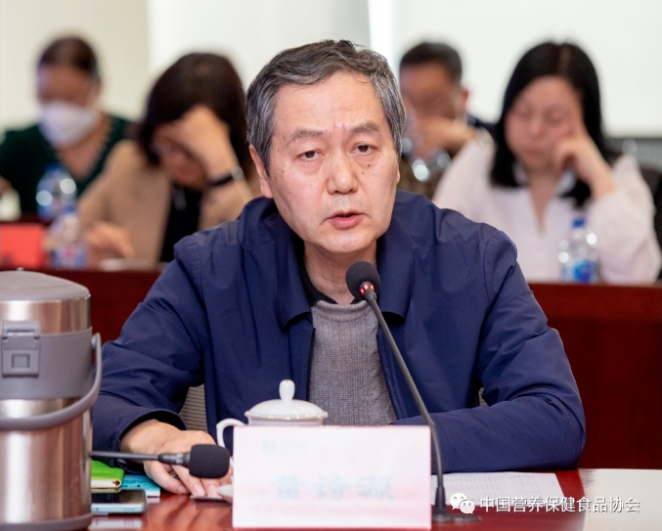
Dong Shiyuan, Deputy Director of the Food evaluation Centre at SAMR, acknowledged that since the introduction and implementation of the Administrative Measures for the Registration of FSMPs in 2016, the FSMP sector in China has made significant strides. He stressed the commitment of the Food evaluation Centre to prioritize people's well-being, guided by the “four strictest” requirements. The center will continue to uphold FSMP safety standards, employ multiple strategies, and prioritize product reviews in clinically urgent categories. These efforts are intended to facilitate the high-quality development of the special food industry.
Addressing the “Last Mile” to Better Meet the Nutritional Needs of Special Populations
Currently, FSMPs in China are well-positioned for development. The National Nutrition Plan (2017-2030) aims to implement clinical nutrition initiatives, promote nutritional prevention and treatment of nutrition-related chronic diseases, and encourage research, development, and production of FSMPs.
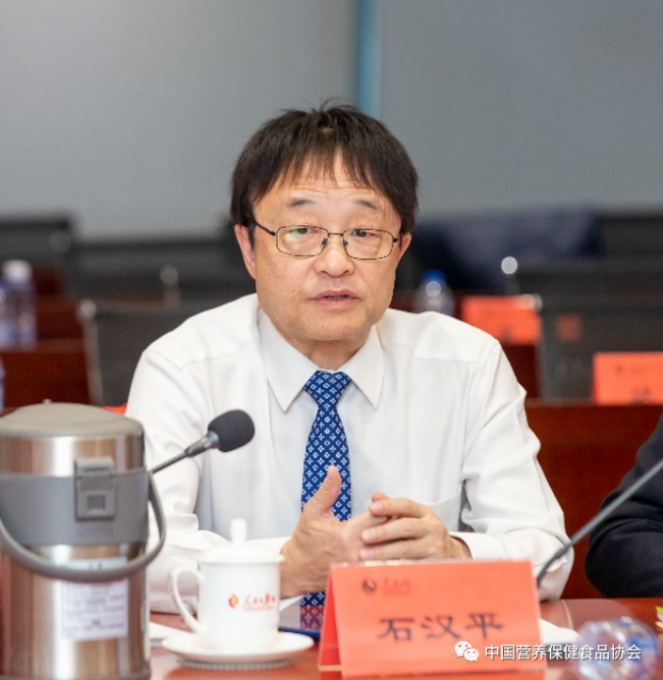
Shi Hanping, Vice President of the CNHFA and Professor at Beijing Shijitan Hospital affiliated with Capital Medical University, highlighted nutrition as the fundamental and primary form of treatment. FSMPs can ameliorate the three primary challenges faced by patients: lack of appetite, inability to eat, and poor digestion. They provide a nutritional foundation for patients and are distinct from both medicines and regular foods. Shi Hanping called for FSMPs to gain acceptance in three key areas: hospitals, health insurance programs, and essential medicine lists.
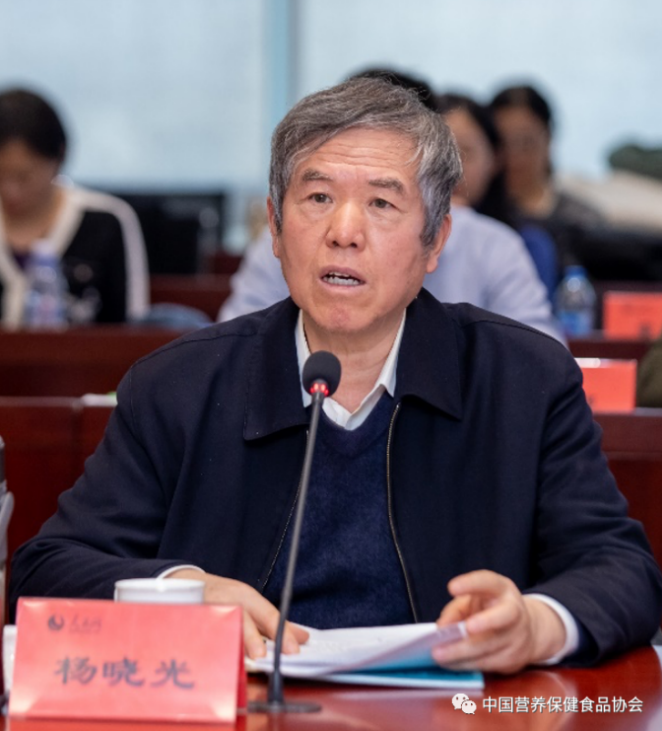
Yang Xiaoguang, a researcher at the Nutrition and Health Institute of the Chinese Centre for Disease Control and Prevention, noted that in recent years, China has made significant progress in the utilization of FSMPs, with the National Nutrition Program (2017-2030) incorporating standardized use of the FSMP into clinical practice. However, challenges such as limited access to hospitals, insufficient healthcare personnel training, and other issues persist. Addressing these challenges requires a collaborative effort from all community stakeholders to bridge the “last mile” in the FSMP distribution chain.
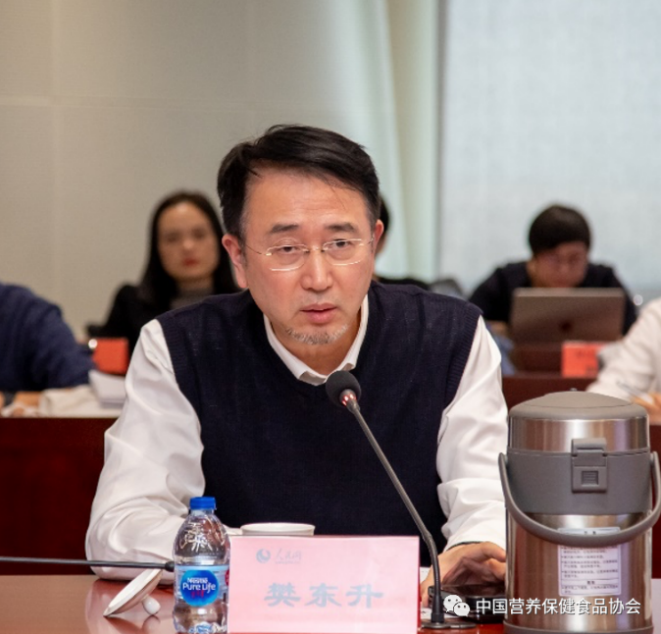
Fan Dongsheng, Director of the Neurology Department at Peking University Third Hospital, emphasized the findings of clinical studies that highlight the importance of nutrition in treating some patients. For example, high-protein, high-fat foods can slow down the progression of rare diseases like acromegaly, preserving patients' quality of life. When patients are unable to meet their nutritional requirements through regular food, FSMPs can play a crucial role.
Working Together to Promote the Development of the FSMP Industry
FSMPs differ significantly from regular foods, requiring substantial investments. The promotion of high-quality development in this industry necessitates cooperation between relevant departments, industry associations, enterprises, and the media.
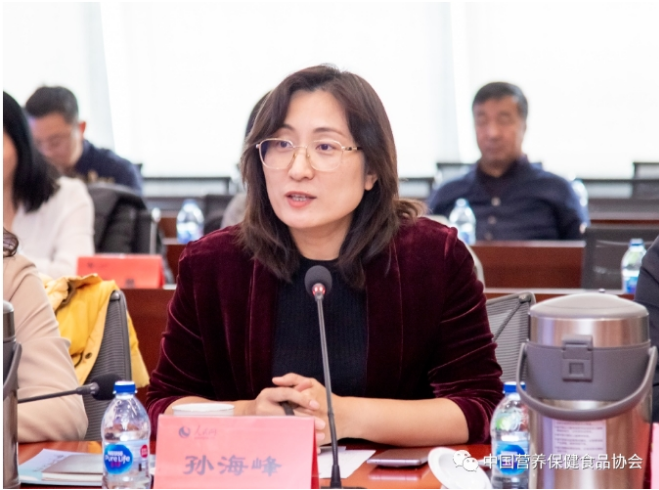
Sun Haifeng, Deputy Editor-In-Chief of People's Daily, acknowledged the critical role played by the FSMP in providing nutritional support to specific populations. With the increasing number of FSMPs available, promoting these products within the market and improving consumer awareness becomes paramount. People's Daily, in collaboration with the CNHFA, will develop and release a public service micro-documentary series titled Guan Shi Jie (Insights of the World). This series will focus on rare diseases and other specific populations, aiming to promote the scientific use of the FSMP, enhance consumer understanding, and address the “last mile” of the FSMP distribution chain.

Bian Zhenjia, President of the CNHFA, highlighted the support received from SAMR and other government departments for these series of activities, which are part of the theme day events for the National Food Safety Awareness Week 2023. He emphasized the CNHFA's commitment to enhancing the standards for specialty foods, refining product classifications, promoting research and development, and ensuring the proper clinical application of FSMPs. The CNHFA will facilitate the dissemination of industry results, provide resources, and share information to encourage the widespread use of specialty foods in hospitals, communities, households, and other application settings. Additionally, the CNHFA aims to protect the rights and interests of FSMP consumers through collective societal efforts.
During the meeting, Liu Yunfeng, Secretary General of the CNHFA's Foods for Special Medical Purpose Sub-Committee, Zou Chunyi, Vice President of Danone Greater China (Vice President Organization of the CNHFA), Liu Bingbing, Deputy Director of Development Research Centre of Tsinghua University's Institute of Social Governance and Development, and other industry representatives also proposed recommendations and strategies for the high-quality development of the specialty food industry. They expressed their anticipation for the timely completion of the “last mile” of the FSMP industry chain, which will aid patients in regaining their health and reduce the medical burden on both families and the nation.
(The CNHFA holds all rights to the information published on this website. For sharing and republishing queries, please contact: cnhfa@cnhfa.org.cn. Authors and sources should be indicated for sharing and republishing purposes.)

